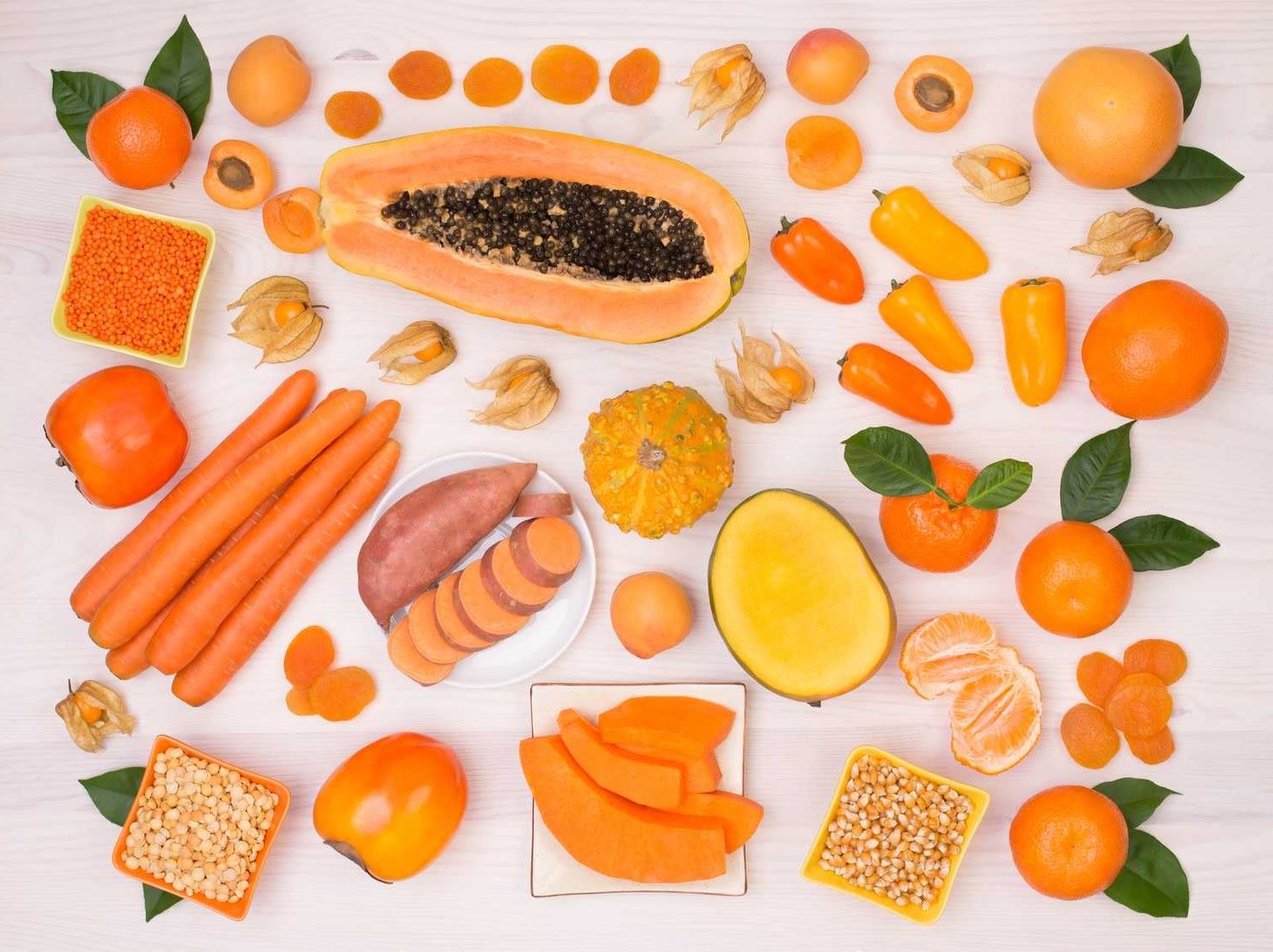
Beta-carotene, a vibrant pigment found in plants, plays a crucial role in human health, acting as a precursor to vitamin A. This colorful compound is what gives carrots, sweet potatoes, and other vegetables their rich hues. Beyond its role in nutrition, beta-carotene has been studied for its potential health benefits, including boosting immune function and reducing the risk of chronic diseases. However, its effects are not limited to just health; it also has applications in the food industry as a natural colorant. In this post, we'll uncover 24 intriguing facts about beta-carotene, shedding light on its sources, benefits, and much more. Whether you're a nutrition enthusiast or simply curious, these insights will enrich your understanding of this essential nutrient.
What is Beta-Carotene?
Beta-carotene is a colorful pigment found in plants and fruits, especially in carrots and other orange vegetables. It's a type of carotenoid, acting as a precursor to vitamin A in the body. This means that when consumed, beta-carotene is converted into vitamin A, an essential nutrient for maintaining healthy vision, skin, and immune functions.
- Beta-carotene is responsible for the vibrant orange color of carrots, sweet potatoes, and other vegetables.
- It's not just found in orange veggies; dark green vegetables like spinach and kale are also rich sources, thanks to their chlorophyll masking the orange pigment.
Health Benefits of Beta-Carotene
Incorporating beta-carotene-rich foods into your diet offers numerous health benefits. Its antioxidant properties help protect cells from damage and support the immune system.
- Beta-carotene supports healthy vision and may reduce the risk of age-related macular degeneration.
- It boosts the immune system by enhancing the body’s defense against diseases and infections.
- Regular consumption of beta-carotene-rich foods can help maintain skin health and appearance.
How Does the Body Use Beta-Carotene?
Once ingested, beta-carotene is either converted into vitamin A (retinol) or acts as a powerful antioxidant to help fight free radicals. This dual function makes it a unique and valuable nutrient.
- The body converts beta-carotene to vitamin A as needed, making it a safe source of the nutrient without the risk of toxicity.
- As an antioxidant, beta-carotene helps neutralize harmful free radicals, reducing the risk of chronic diseases.
Dietary Sources of Beta-Carotene
To ensure you're getting enough beta-carotene, focus on including a variety of fruits and vegetables in your diet. The more colorful your plate, the better.
- Carrots, sweet potatoes, and pumpkins are among the richest sources of beta-carotene.
- Fruits like apricots, cantaloupe, and mangoes also provide significant amounts.
- Don't overlook green veggies; spinach, kale, and broccoli contain beta-carotene too.
Beta-Carotene Supplements: Are They Necessary?
While getting nutrients from food is always preferable, some individuals may consider supplements to boost their intake. However, it's important to approach supplementation with caution.
- Beta-carotene supplements are available but not recommended for everyone, especially smokers, as high doses may increase the risk of lung cancer.
- It's best to consult with a healthcare provider before starting any supplement regimen.
Cooking and Storage Tips to Maximize Beta-Carotene
How you prepare and store beta-carotene-rich foods can affect their nutrient content. Here are some tips to help you get the most out of these foods.
- Cooking methods like steaming or microwaving can help retain beta-carotene levels in vegetables.
- Storing fruits and vegetables in a cool, dark place can help preserve their beta-carotene content.
- Adding a small amount of healthy fat to beta-carotene-rich foods can improve absorption of the nutrient.
Beta-Carotene and Skin Health
Beta-carotene's benefits extend beyond just internal health; it also plays a role in maintaining and protecting the skin.
- Beta-carotene can help protect the skin from sun damage and improve skin health and appearance.
- Consuming beta-carotene-rich foods may contribute to a natural glow and healthier-looking skin.
The Role of Beta-Carotene in Eye Health
Good vision relies on several nutrients, with beta-carotene being a key player due to its conversion to vitamin A.
- Adequate intake of beta-carotene is crucial for preventing night blindness and other vision problems.
- It may also help reduce the risk of cataracts and other age-related eye diseases.
Can Too Much Beta-Carotene Be Harmful?
While beta-carotene is generally considered safe, consuming extremely high amounts, particularly from supplements, can lead to complications.
- Excessive consumption of beta-carotene can cause carotenemia, a condition where the skin turns orange.
- High doses of beta-carotene supplements have been linked to an increased risk of lung cancer in smokers.
Beta-Carotene and Overall Wellness
Incorporating beta-carotene into your diet is a simple way to boost your overall health and well-being.
- Its antioxidant properties support cardiovascular health by protecting against heart disease.
- Beta-carotene plays a role in supporting cognitive function and may help prevent age-related mental decline.
- Regular intake of beta-carotene-rich foods can contribute to a strong immune system, helping your body fight off illnesses more effectively.
A Final Scoop on Beta-Carotene
Beta-carotene, a vibrant plant pigment, offers more than just a splash of color to fruits and veggies. It's a powerhouse of health benefits, from boosting eye health to supporting the immune system. Remember, while supplements are an option, getting beta-caranote directly from food sources like carrots, sweet potatoes, and spinach is usually the best bet. Too much of a good thing can lead to issues, so moderation is key. For most folks, incorporating a variety of beta-carotene-rich foods into their diet is a smart move for overall health. Always consider chatting with a healthcare provider before making significant changes to your diet or starting new supplements. With its impressive benefits and vibrant hues, beta-carotene stands out as a nutrient worth knowing about and including in your daily meals.
Was this page helpful?
Our commitment to delivering trustworthy and engaging content is at the heart of what we do. Each fact on our site is contributed by real users like you, bringing a wealth of diverse insights and information. To ensure the highest standards of accuracy and reliability, our dedicated editors meticulously review each submission. This process guarantees that the facts we share are not only fascinating but also credible. Trust in our commitment to quality and authenticity as you explore and learn with us.


